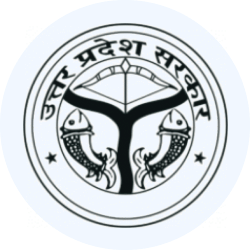Illiteracy—Bottleneck To Development - Essay, UPSC MAINS | Course for UPPSC Preparation - UPPSC (UP) PDF Download
Illiteracy—Bottleneck To Development
structure
(1) Opening — A paradox present scenario statistics.
(2) Body — Investment in Education is Investmnet in country’s development
— Effect of population explosion.
— Illiteracy more is unskilled labourers, marginal farmers and slum dwellers.
— Illiteracy leads to exploit-ation and blocking of growth
— Illiterate can be exploited by politicians and vested interests.
— Position of women related to literacy
— Effects
* Planning * Money * Voluntary agencies
(3) Closing — Poverty and illiteracy are Breeding each other.
— Everyone’s responsibility
India is a country of paradoxes. On one hand, she has the third largest pool of engineers and doctors and on the other hand vast its population is still completely illiterate. The condition of women is even worse; more than 50% of women in the country are still illiterates. Of the 14 crore households in our country, around 8.4 crore do not have a literate housewife. The position of other developing countries like Indonesia, China and S. Korea is much better than us in the field of literacy with more than 70% of their population that can read and write.
It is rightly remarked that investment in education is investment in a country’s prosperity and development. Illiterate people are not aware of their rights, they do not understand the usefulness of small family and therefore they are caught in the tricky triangle of illiteracy, poverty and population. Those who are “born poor, live poor and die poor”. A direct link between poverty and illiteracy can be understood from the fact that of the 8.4 m households that have an illiterate housewife, 91% belong to those who are below poverty line.
Demographers point out that growing population eats away all the beneficial effects of development. And an illiterate person understands this the least. He is more prone to have a large family and as a result, larger problems.
In our country, most of the illiterates are unskilled labourers, marginal farmers and slum dwellers in the cities. Illiteracy prevents a marginal farmer to protect himself from exploitation and understand land ceiling acts and fight for his rights. Similarly illiteracy prevents an unskilled worker from getting skilled and increase his income.
Today we face the problems of communalism and intolerance in the society. Political parties are trying to whip emotions to further their ends. An illiterate person is most prone to emotional propaganda and thus can be wooed easily. And why only today, always for democracy to succeed, it is important that people understand the political process, policies and principles of various parties and can think to chose. We must remember that democracy is as much essential for development for our country as democracy is for free education.
Position of women in family and society is also directly related to literacy. kerala, that has the highest literacy rate in the country’ is also the only state that has a favourable sex ratio is not coincidence. literate mothers will produce a whole new generation of literates. Also, degrading status of women can be fought only by providing them with independent status and this is possible only if they are literate. Also, women with independent status will be more than instrumental in keeping family size small.
Illiteracy has to be fought on war footing. This requires concerted efforts of leaders, administrators and voluntary agencies. It is important to find resources, develop creativity and motivation to begin a mass movement to fight this monster.
But more than the Government, it is the voluntary agencies that have a greater role to play. They can do the work requiring much lesser money because they take services of those people who are motivated enough to do the job. Ernakulam, Burdwan and Moradabad are living examples. Voluntary agencies could do in one year what Government could not do in 40 yrs. Government can, however, play the role of a catalyst.
Illiteracy and poverty are twin menaces that are feeding on and breeding each other. The problems of population explosion and consequent poverty are because of illiteracy and is an example of “minus cancelling plus”. Let each of us consider it as his responsibility to teach at least one person and make him literate. If we take this small step ourselves, this country will take a giant stride on the road of prosperity and freedom.
|
113 videos|360 docs|105 tests
|
FAQs on Illiteracy—Bottleneck To Development - Essay, UPSC MAINS - Course for UPPSC Preparation - UPPSC (UP)
| 1. What is the impact of illiteracy on development? |  |
| 2. How does illiteracy affect economic development? |  |
| 3. What are the social consequences of illiteracy? |  |
| 4. How does illiteracy impact the education system? |  |
| 5. What measures can be taken to address illiteracy and promote development? |  |

|
Explore Courses for UPPSC (UP) exam
|

|


















